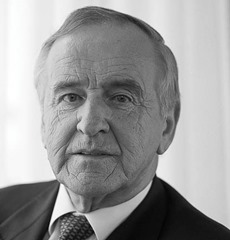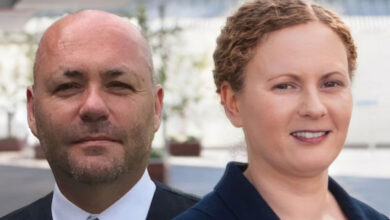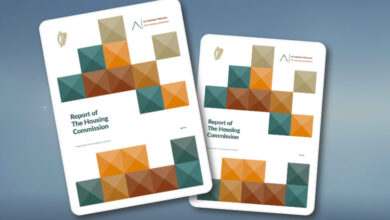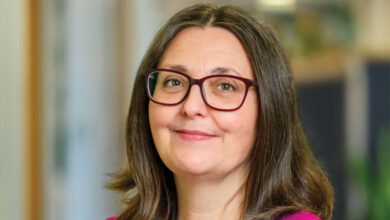Obituary: Albert Reynolds
3 November 1932 – 21 August 2014
An Taoiseach 1992 – 1994
Albert Reynolds’ upbringing was a humble and hard-working one.
A self-made problem-solver, to whom the trappings of office meant little, he was often denigrated by the Dublin establishment. A mid-life interest in politics meant that he brought years of business acumen and a desire for efficiency when approaching his responsibilities in government. Reynolds represented Longford-Westmeath from 1977 until his retirement in 2002.
Initial loyalty to Charles Haughey led to a series of economic briefs, covering industry, energy, posts and telecoms. His term as Minister of Finance (1988-1991) positioned Reynolds well for his initial heave against Haughey. The phone-tapping revelations proved to be the tipping point and Reynolds easily won the Fianna Fáil leadership on 6 February 1992.
Almost three brief and momentous years as Taoiseach began with a clearing out of Haughey’s old guard.
The Maastricht Treaty, establishing the European Union, was approved by 69 per cent of voters in June of that year while the X case culminated in three referenda in November which settled the legal position on abortion until last year’s legislation.
In the same month, alleged dishonesty arising from the Beef Tribunal broke up the coalition with the Progressive Democrats and forced a general election. After Fianna Fáil’s poorest performance since 1927, Reynolds secured a large majority with the help of Labour leader Dick Spring.
Early steps towards peace in Northern Ireland stand out as Reynolds’ greatest achievement. The rapport between Major and Reynolds built on the Hume-Adams dialogue. The political risks were high – not least as republican and loyalist violence continued – but Reynolds’ perseverance and skill was essential in securing the 1994 ceasefires.
That level of progress, ultimately saving hundreds of lives, would have been almost unthinkable under the strained Thatcher-Haughey relationship and the Downing Street Declaration’s words resonate more than two decades later. The “opportunity for a new departure … would compromise no position or principle, nor prejudice the future of either community” but instead represent “an incomparable gain for all.”
Relations with Labour soured over the Beef Tribunal report and divisions over the appointment of Harry Whelehan to the High Court led to the Government’s fall in November 1994. Reynolds handed over the office to John Bruton on 15 December – exactly a year after his Downing Street press conference. Labour continued in power until 1997 but Spring never realised his ambition to become Taoiseach.
Reynolds would undoubtedly have thrived in a term in the Áras but the parliamentary party had decided that his time had passed and nominated Mary McAleese instead. He avoided public bitterness against his former colleagues and took comfort, as ever, from his wife Kathleen and a loving extended family who nursed him in his later years. The state funeral was an apt tribute to an ambitious man who achieved much for the State in his short time in office.






